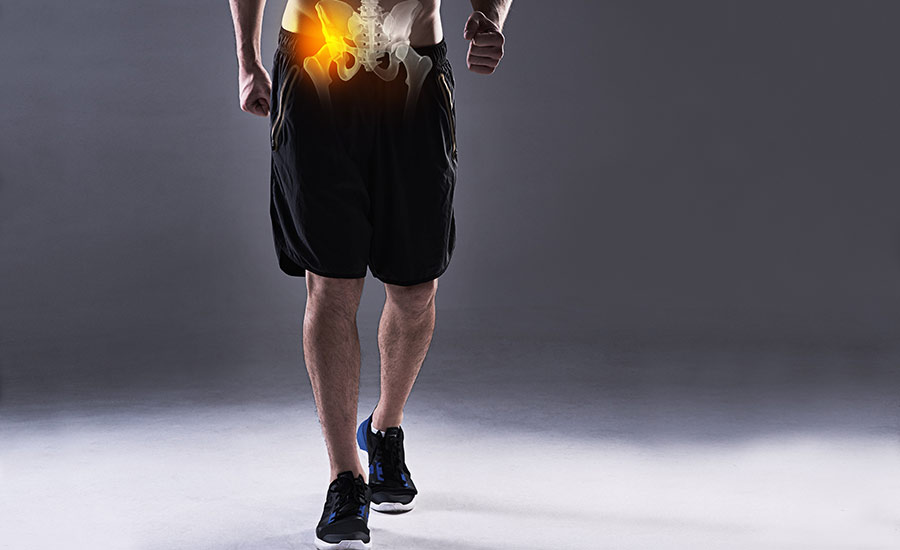
Pain Management Doctors in New Jersey & New York

Pain Management Specialists
Find a Specialist Near You
Get the care you deserve close to home at one of our New Jersey or New York Locations.
About Pain Management

Pain Management by the Numbers
An estimated 50.2 million people — about 20% of the American adult population — live with chronic pain.
The effects of chronic pain can be debilitating, not only to your physical health but also your mental and emotional well-being.
Pain management is a medical specialty that focuses on alleviating chronic pain and improving the quality of life for patients.
It encompasses a variety of treatments and techniques and can be customized to meet the unique needs of each patient.
Common Pain Conditions
Pain can manifest in various ways, from sharp, stabbing sensations to dull, aching pain that persists over time. It can result from various orthopedic conditions and injuries, impacting the musculoskeletal system.
Some of the most common conditions that cause pain in orthopedic care include:
This degenerative joint disease can cause pain and inflammation in the joints. There are different types of arthritis, including osteoarthritis, rheumatoid arthritis, and psoriatic arthritis.
This is a condition in which the rubbery discs between the spinal vertebrae slip out of place, causing pressure on nerves and leading to pain, numbness, or weakness in the arms or legs.
These can range from minor sprains and strains to more severe injuries like fractures, dislocations, and torn ligaments. Sports injuries often cause pain and may require surgical intervention.
On top of mobility issues and a reduced quality of life, chronic pain is also linked to anxiety, depression and opioid dependency. Pain management can help alleviate the symptoms and consequences of painful conditions, allowing you to live more comfortably and improve your quality of life.
Pain Management Procedures
Orthopedic pain management procedures are minimally invasive techniques that can be used to relieve chronic pain caused by different orthopedic conditions.
The choice of procedure depends on your specific condition and severity of pain. Your dedicated treatment team will work with you to find the treatments that align with your personal recovery goals.
These procedures are valuable tools in treating chronic pain caused by different orthopedic conditions. Some common orthopedic pain management procedures include:
- Epidural steroid injections
- Facet joint injections
- Nerve blocks
- Radiofrequency ablation
- Spinal cord stimulation
- Joint injections
- Bursa injections
Epidural steroid injections are often used to treat pain caused by a herniated disc or spinal stenosis. These injections deliver corticosteroid medication directly into the affected joint or tissue to reduce inflammation and alleviate pain.
The procedure involves injecting a mixture of corticosteroid medication and local anesthetic directly into the joint or soft tissue under ultrasound or fluoroscopic guidance. The injection typically takes only a few minutes, and patients can usually return to normal activities immediately.
Facet joint injections are used to treat pain caused by arthritis in the spine. The facet joints are small, cartilage-lined joints that connect the vertebrae in the spine. When these joints become inflamed, they can cause significant pain and stiffness.
The injection involves injecting a mixture of local anesthetic and corticosteroid medication into the affected facet joint under fluoroscopic guidance. This helps to reduce inflammation and alleviate pain.
Nerve blocks are a minimally invasive procedure that can help relieve pain in specific areas of the body, like the neck or lower back.
During the procedure, a small amount of anesthetic is injected near the nerve that is causing pain. This helps block pain signals from traveling to the brain.
Nerve blocks can be used to treat a wide range of conditions, including chronic headaches, arthritis, and back pain. They’re generally considered safe, have few side effects, and can provide temporary relief from pain.
Radiofrequency ablation is a procedure that uses heat to destroy nerve fibers that are causing pain. The procedure involves inserting a small needle-like device, called a radiofrequency electrode, into the area around the affected nerve under fluoroscopic guidance.
Once the electrode is in place, a high-frequency electrical current is passed through it. This current heats the surrounding tissue, “turning off” the nerve transmitting pain signals.
Radiofrequency ablation is typically used to treat chronic pain conditions, such as arthritis or back pain. It is often used after other treatments like medication or physical therapy have failed to provide sufficient pain relief.
Joint injections are used to treat pain caused by arthritis in the joints, such as the knee or hip.
This is a common orthopedic pain management procedure during which medication (like steroids, platelet-rich plasma, or stem cells) is injected directly into the affected joint.
Joint injections can help reduce inflammation and pain in the joint, increase range of motion, and improve overall function.
They’re typically performed with the guidance of fluoroscopy or ultrasound to ensure accurate placement of the medication and minimize the risk of injecting the wrong location.
Bursae are small fluid-filled sacs located near the joints that act as cushions between bones and soft tissues.
Repeated use or injury to a joint can lead to inflammation of the bursa – a condition known as bursitis. Bursa injections can be an effective treatment option for managing pain and inflammation caused by bursitis.
During a bursa injection, medication is injected into the affected bursa to reduce inflammation and alleviate pain.
The injection is typically performed under ultrasound guidance, which allows for precise placement of the medication into the affected bursa. This helps to maximize the results of the injection and reduce the risk of complications.
Managing Pain With Medication
Medication management is an integral part of pain management for chronic conditions. Orthopedic specialists prioritize the use of non-opioid and non-addictive medications to manage pain. These medications can include:
- Nonsteroidal anti-inflammatory drugs (NSAIDs; for example, aspirin and ibuprofen)
- Acetaminophen (Tylenol)
- Muscle relaxants (only available by prescription)
While opioids are sometimes necessary for short-term pain management, they are not recommended for long-term use due to their potential for addiction and adverse effects.
Our specialists work closely with patients to develop personalized medication management plans that balance pain relief with minimizing the risks associated with long-term opioid use. Our ultimate goal is to improve patients’ quality of life and reduce dependence on medication.
When To Seek Emergency Pain Management Care
While pain management treatments are designed to alleviate chronic pain, there are times when emergency care may be necessary.
If you experience severe pain, sudden loss of sensation or muscle function, or other symptoms like fever or difficulty breathing, seek medical attention immediately.
Pain Management Treatments at OrthoEast
At OrthoEast, we take a personalized approach to pain management for every patient. Based on your condition, medical history, age and other factors, our team will create a comprehensive pain management plan to help restore your quality of life.
Our physicians specialize in several different areas, including:
- Carpal Tunnel Surgery
- Knee Repair & Preservation
- Hip Repair & Preservation
- Shoulder Repair & Preservation
Whether you’re suffering from pain related to your knee, hip, shoulder, elbow, hand or ankle, or a painful condition like arthritis, we’ll find the treatment plan that’s right for you.
From your initial consultation to your procedure and recovery, our compassionate team will be by your side every step of the way to help you find a pain-free future.
What To Expect During Your Pain Management Consultation at OrthoEast
At OrthoEast, we take careful inventory of your condition, history and unique needs to create a full-body course of treatment that supports your personal treatment goals.
During your first pain management appointment, we’ll compile a detailed medical history that includes items like:
- Current medications, including dose and frequency
- Records of previous procedures and surgeries
- Existing treatment plans from your PCP or other providers
- Recent diagnostic images or test results from the past few years
Your pain management physician will perform a physical examination to determine the cause of your pain. We may also order diagnostic tests such as X-rays, MRIs, or blood tests.
Based on all of this information, we’ll formulate a personalized treatment plan that may include medication, injections, physical therapy, or other forms of pain management.
Find Pain Management in New Jersey & New York at OrthoEast
At OrthoEast, our pain management specialists provide comprehensive care and customized treatment plans to help our patients manage their pain and improve their quality of life.
If you’re living with chronic pain, we’re here to help. Contact us today to schedule an appointment and take the first step toward finding relief.








